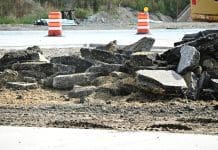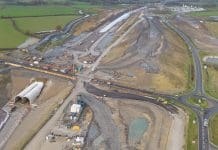A new Artificial Intelligence computer software, developed in partnership by Omnicom Balfour Beatty and The University of York, and supported by Innovate UK, is set to revolutionise the rail track inspection process and save the rail industry £10m per year
The Knowledge Transfer Partnership is a collaborative relationship between Omnicom Balfour Beatty and The University of York where academic understanding is shared.
The partnership has developed a state-of-the-art, machine-learning technology to digitalise and advance the way in which rail track inspections are carried out.
Attached to the front of the train, a camera moves along rail tracks in need of inspection. The technology utilises machine vision, which captures high definition images of the rail track to generate data, which is then transferred through to a system which analyses the data to highlight inaccuracies and faults on the tracks.
In addition, the technology assists in identifying where faults may occur, allowing anticipatory fixes to be implemented as opposed to urgent repairs after an issue arises.
The technology, which is currently being progressed from proof of concept into a commercial grade software, should provide a more efficient and safer alternative to what is currently a manual rail track inspection process.
By automating the process, the health and safety of workers will improve by minimising their exposure to live track environments as well as reducing the time taken to complete a manual inspection.
Stephen Tait, head of operations for Omnicom Balfour Beatty, said: “We are developing digital technologies that are rapidly changing our industry; from ‘predict and prevent’ technology and advanced digital surveying techniques through to data science.
“This latest innovation is an excellent example of how Balfour Beatty continues to deliver our commitment to reduce our onsite work by 25% by 2025 as we progress against our commitment to develop technologies to evolve the digital railway for a more reliable, cost-efficient and safe network for all users.”
Professor Richard Wilson, lead researcher on the project at the University of York, added: “These machine vision technologies for high-speed rail inspection will improve the reliability of the railway network, reduce costs and increase the safety of manual rail track inspection.
“The computer vision and machine learning technologies provide automated inspection of complex assets such as junctions and crossings.”
This partnership received financial support from the Knowledge Transfer Partnerships programme. Knowledge Transfer Partnerships help businesses improve their competitiveness and productivity through the better use of knowledge, technology and skills that reside within the UK knowledge base.














